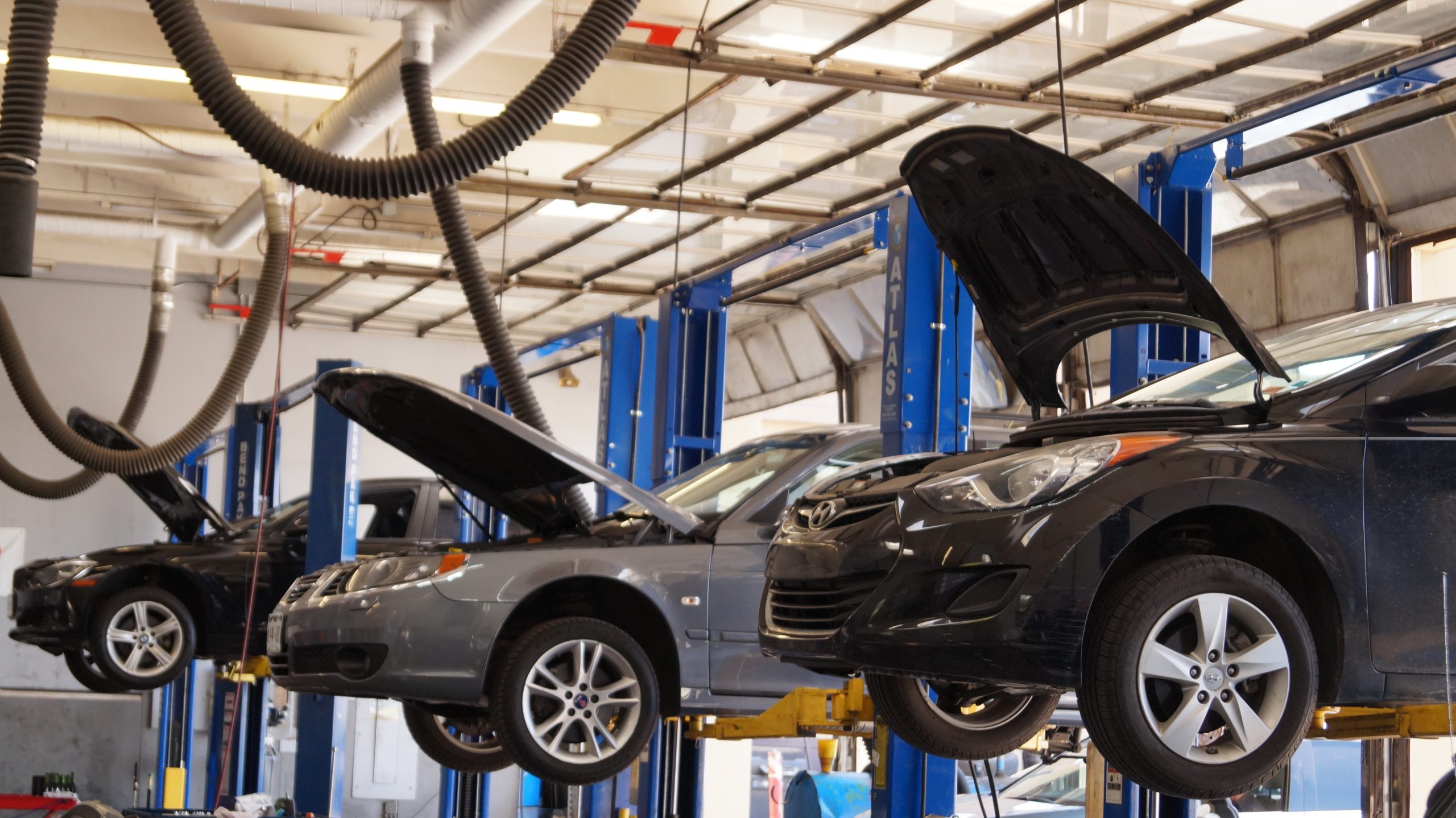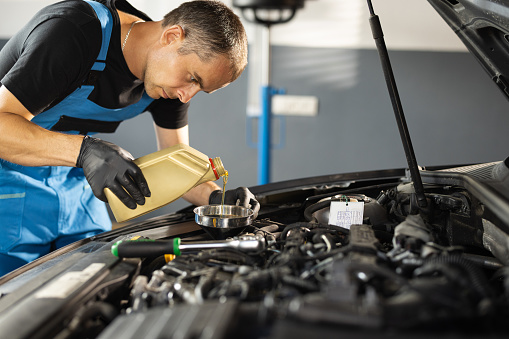When the a/c (A/C) system in your auto begins to breakdown, it can be discouraging, specifically on hot summer days. Recognizing the most common reasons for A/C problems can assist you deal with the issue promptly and stay clear of expensive repair services. Here are a number of reasons your auto's air conditioning may not be functioning as it should.
![]()
If your A/C strikes cozy or insufficiently great air, maybe an indicator that the refrigerant needs to be reenergized. A technician will have the ability to inspect the refrigerant degree and top it off or fix any leakages causing the loss of cooling agent.
![]()
Signs of a malfunctioning compressor consist of uncommon sounds like squealing or grinding, or the cooling blowing cozy air rather than amazing air. A defective compressor can frequently be repaired or replaced, but neglecting it might lead to a costly repair or replacement of the entire A/C system.
When the air flow is limited, the A/C system needs to function tougher to cool down the cabin, which can result in ineffective efficiency. Changing the air filter regularly-- typically every 12,000 to 15,000 miles-- can protect against air flow problems and keep your A/C running efficiently.
If your A/C system stops working suddenly, it might be as a result of an electric problem. A licensed auto mechanic will have the ability to evaluate the electrical elements and replace any type of defective parts.
Usual indications of a cooling fan issue include the A/C blowing warm air or an increase in engine temperature level. If you presume a concern with the air conditioning fans, it is essential to have them evaluated and repaired as soon as possible to avoid further damages to the A/C system.
If you notice that your A/C blows cozy air, or if the air gets chilly only intermittently, the expansion valve might be the wrongdoer. An auto mechanic will certainly have the ability to check and change the shutoff if needed.
![]()
A specialist auto mechanic can make use of unique tools to detect leakages in the system and fix them. Without fixing leaks, your A/C will certainly continue to lose refrigerant, and your vehicle will likely experience reoccuring issues.
Exactly How to stop A/C Issues. To keep your A/C system operating effectively and expand its life expectancy, adhere to these preventive pointers:
Run your A/C on a regular basis: Also in the colder months, run the A/C for a few minutes every few weeks to maintain the system lubricated and the seals intact. Inspect refrigerant levels: Periodically examine the cooling agent levels and leading them off if essential. Replace the cabin air filter: Change your cabin air filter consistently to ensure great air flow and keep the system working efficiently. Keep the condenser tidy: On a regular basis clean the condenser to get rid of particles like leaves or dust that might obstruct air movement. Verdict. Understanding the common reasons for A/C issues can help you take the ideal steps to maintain your auto's cooling system in leading problem. Whether it's low cooling agent, a defective compressor, or a clogged up filter, dealing with problems early can conserve you from even more expensive repair work in the future. Seek advice from a qualified mechanic to repair the issue and examine before it obtains even worse if you notice any type of issues with your A/C system. Routine upkeep and prompt repairs are key to guaranteeing your A/C maintains you great and comfortable all year long.
- Reduced Refrigerant Degrees. The refrigerant is a key part in your automobile's A/C system. If the refrigerant degree is reduced, the system can not cool the air effectively.

If your A/C strikes cozy or insufficiently great air, maybe an indicator that the refrigerant needs to be reenergized. A technician will have the ability to inspect the refrigerant degree and top it off or fix any leakages causing the loss of cooling agent.
- A Faulty Compressor. The compressor is responsible for distributing cooling agent throughout the A/C system. It is powered by the engine and functions by pressurizing the refrigerant to ensure that it can be cooled by the condenser. The whole A/C system will stop functioning. if the compressor fails.

Signs of a malfunctioning compressor consist of uncommon sounds like squealing or grinding, or the cooling blowing cozy air rather than amazing air. A defective compressor can frequently be repaired or replaced, but neglecting it might lead to a costly repair or replacement of the entire A/C system.
- Clogged Air Filters. The cabin air filter plays a critical duty in maintaining the air inside your auto tidy by trapping dirt, dust, and other particles. Nevertheless, with time, the air filter can become clogged up, restricting airflow and causing the A/C to blow inconsistent or weak air.
When the air flow is limited, the A/C system needs to function tougher to cool down the cabin, which can result in ineffective efficiency. Changing the air filter regularly-- typically every 12,000 to 15,000 miles-- can protect against air flow problems and keep your A/C running efficiently.
- Electrical Problems. Modern autos have intricate electrical systems, and issues with electrical wiring or integrates can affect your A/C system. For example, if a fuse impacts or wiring becomes corroded, it can stop the A/C system from functioning properly.
If your A/C system stops working suddenly, it might be as a result of an electric problem. A licensed auto mechanic will have the ability to evaluate the electrical elements and replace any type of defective parts.
- Broken Air Conditioning Fans. Cooling fans help control the temperature of the A/C system by directing air flow across the condenser. If the air conditioning fans fall short or quit working, the refrigerant can not cool properly, creating the air to stay cozy.
Usual indications of a cooling fan issue include the A/C blowing warm air or an increase in engine temperature level. If you presume a concern with the air conditioning fans, it is essential to have them evaluated and repaired as soon as possible to avoid further damages to the A/C system.
- Faulty Growth Valve. The growth valve controls the circulation of cooling agent right into the evaporator, where the air is cooled down before going into the cabin. If the expansion valve is clogged or defective, it can disrupt the circulation of cooling agent, creating the A/C to blow warm air. This issue can also create the evaporator to freeze, resulting in a full A/C failure.
If you notice that your A/C blows cozy air, or if the air gets chilly only intermittently, the expansion valve might be the wrongdoer. An auto mechanic will certainly have the ability to check and change the shutoff if needed.

- Leaks in the System. Leaks in your A/C system, whether in the cooling agent lines or components like the evaporator or condenser, can create your A/C to quit working. Refrigerant leakages are one of one of the most typical reasons for a reduction in A/C efficiency. Also a tiny leakage can create substantial concerns with the cooling procedure, as the refrigerant degree declines and the system stops working to cool the air effectively.
A specialist auto mechanic can make use of unique tools to detect leakages in the system and fix them. Without fixing leaks, your A/C will certainly continue to lose refrigerant, and your vehicle will likely experience reoccuring issues.
Exactly How to stop A/C Issues. To keep your A/C system operating effectively and expand its life expectancy, adhere to these preventive pointers:
Run your A/C on a regular basis: Also in the colder months, run the A/C for a few minutes every few weeks to maintain the system lubricated and the seals intact. Inspect refrigerant levels: Periodically examine the cooling agent levels and leading them off if essential. Replace the cabin air filter: Change your cabin air filter consistently to ensure great air flow and keep the system working efficiently. Keep the condenser tidy: On a regular basis clean the condenser to get rid of particles like leaves or dust that might obstruct air movement. Verdict. Understanding the common reasons for A/C issues can help you take the ideal steps to maintain your auto's cooling system in leading problem. Whether it's low cooling agent, a defective compressor, or a clogged up filter, dealing with problems early can conserve you from even more expensive repair work in the future. Seek advice from a qualified mechanic to repair the issue and examine before it obtains even worse if you notice any type of issues with your A/C system. Routine upkeep and prompt repairs are key to guaranteeing your A/C maintains you great and comfortable all year long.
Navigation
Home
Latest Posts
Discover the Vibrant New Mazda CX-50
Published May 25, 25
2 min read
Your Journey Begins Below: The Jake Sweeney Mazda Benefit
Published May 23, 25
2 min read
Mazda CX-70: Raise Your Driving Experience
Published May 23, 25
2 min read